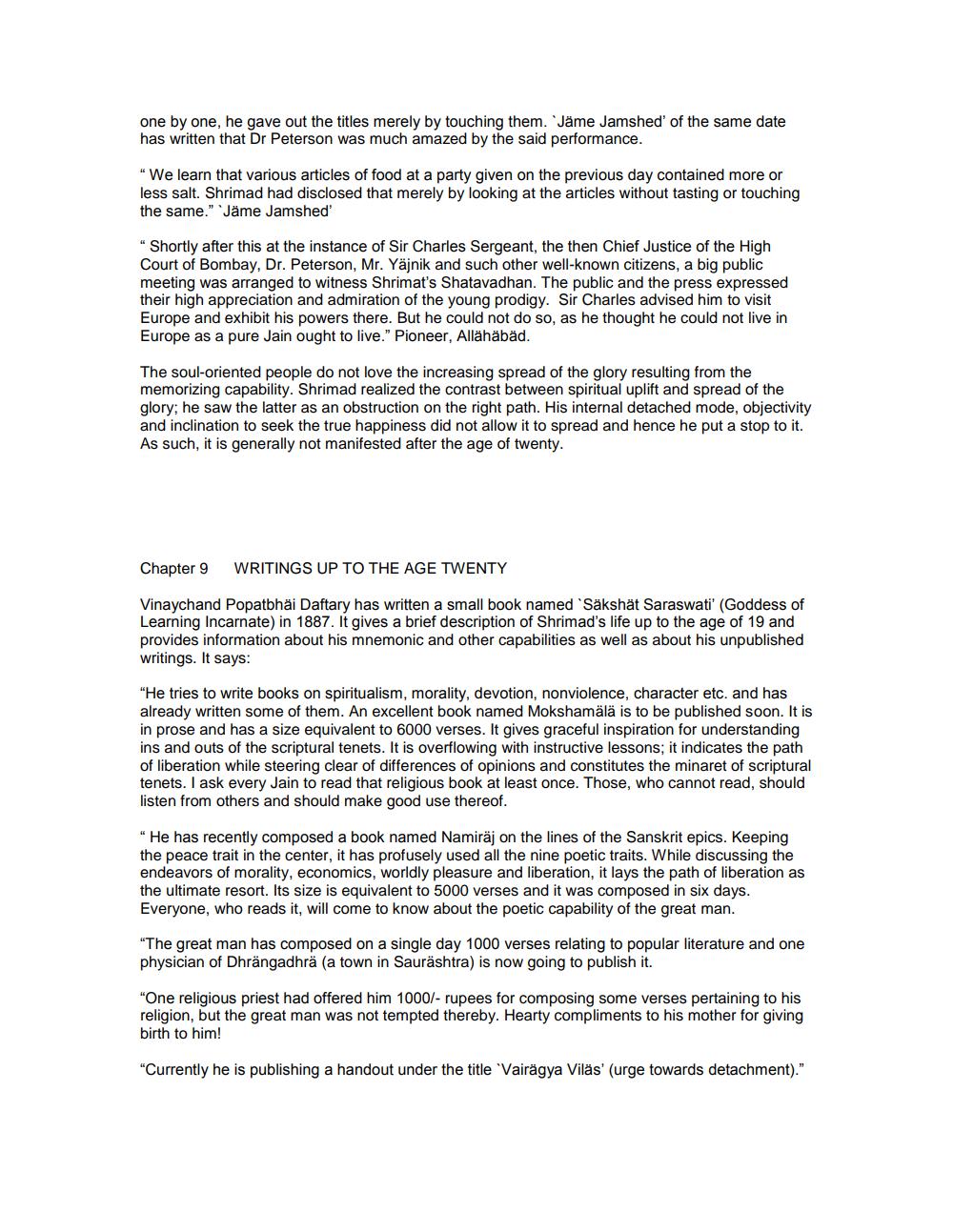________________
one by one, he gave out the titles merely by touching them. Jäme Jamshed' of the same date has written that Dr Peterson was much amazed by the said performance.
"We learn that various articles of food at a party given on the previous day contained more or less salt. Shrimad had disclosed that merely by looking at the articles without tasting or touching the same." Jäme Jamshed'
"Shortly after this at the instance of Sir Charles Sergeant, the then Chief Justice of the High Court of Bombay, Dr. Peterson, Mr. Yäjnik and such other well-known citizens, a big public meeting was arranged to witness Shrimat's Shatavadhan. The public and the press expressed their high appreciation and admiration of the young prodigy. Sir Charles advised him to visit Europe and exhibit his powers there. But he could not do so, as he thought he could not live in Europe as a pure Jain ought to live." Pioneer, Allahabad.
The soul-oriented people do not love the increasing spread of the glory resulting from the memorizing capability. Shrimad realized the contrast between spiritual uplift and spread of the glory; he saw the latter as an obstruction on the right path. His internal detached mode, objectivity and inclination to seek the true happiness did not allow it to spread and hence he put a stop to it. As such, it is generally not manifested after the age of twenty.
Chapter 9 WRITINGS UP TO THE AGE TWENTY
Vinaychand Popatbhai Daftary has written a small book named 'Säkshät Saraswati' (Goddess of Learning Incarnate) in 1887. It gives a brief description of Shrimad's life up to the age of 19 and provides information about his mnemonic and other capabilities as well as about his unpublished writings. It says:
"He tries to write books on spiritualism, morality, devotion, nonviolence, character etc. and has already written some of them. An excellent book named Mokshamälä is to be published soon. It is in prose and has a size equivalent to 6000 verses. It gives graceful inspiration for understanding ins and outs of the scriptural tenets. It is overflowing with instructive lessons; it indicates the path of liberation while steering clear of differences of opinions and constitutes the minaret of scriptural tenets. I ask every Jain to read that religious book at least once. Those, who cannot read, should listen from others and should make good use thereof.
"He has recently composed a book named Namiraj on the lines of the Sanskrit epics. Keeping the peace trait in the center, it has profusely used all the nine poetic traits. While discussing the endeavors of morality, economics, worldly pleasure and liberation, it lays the path of liberation as the ultimate resort. Its size is equivalent to 5000 verses and it was composed in six days. Everyone, who reads it, will come to know about the poetic capability of the great man.
"The great man has composed on a single day 1000 verses relating to popular literature and one physician of Dhrängadhrä (a town in Saurashtra) is now going to publish it.
"One religious priest had offered him 1000/- rupees for composing some verses pertaining to his religion, but the great man was not tempted thereby. Hearty compliments to his mother for giving birth to him!
"Currently he is publishing a handout under the title Vairagya Viläs' (urge towards detachment)."




